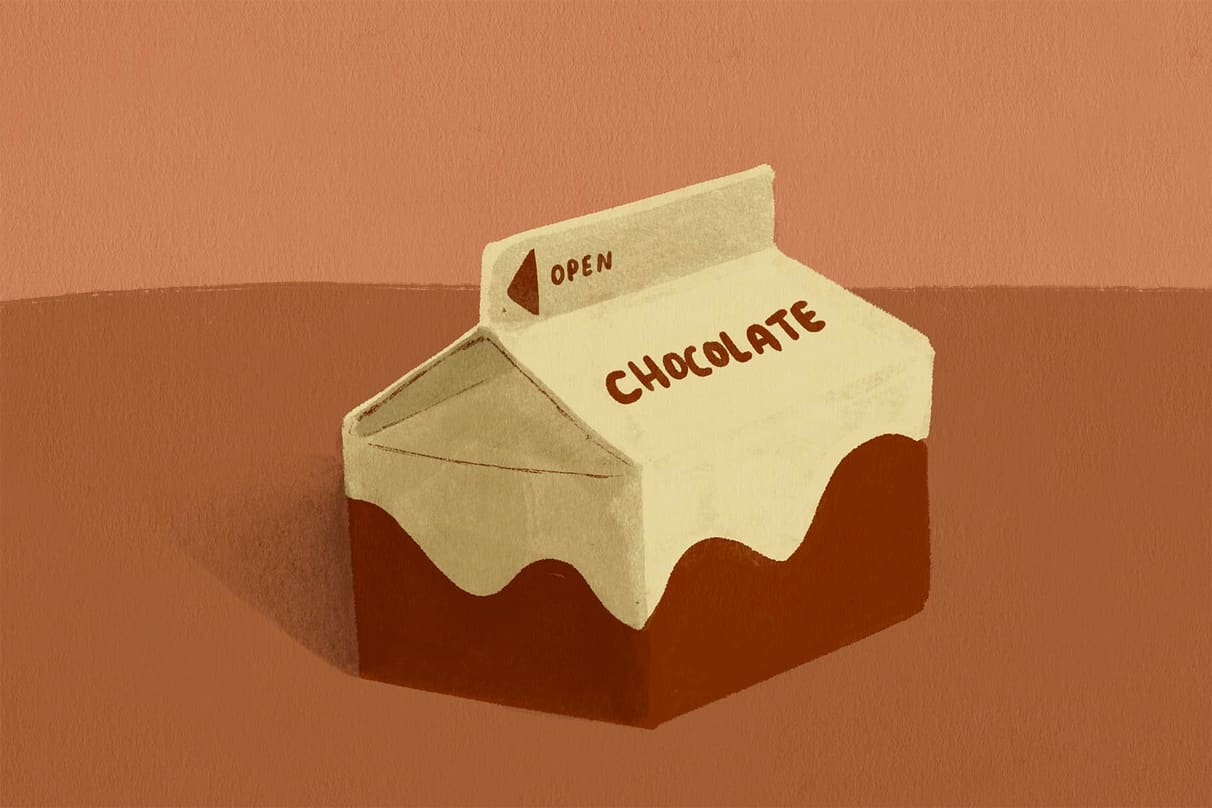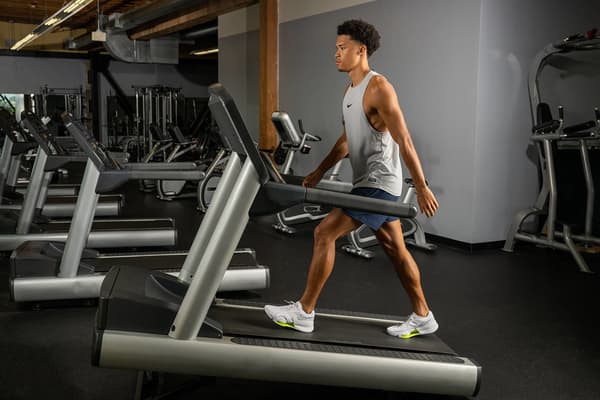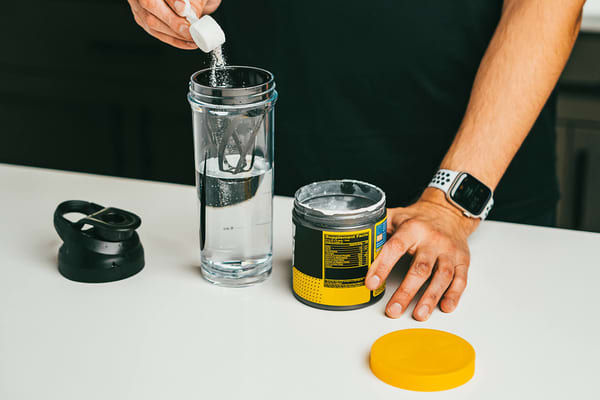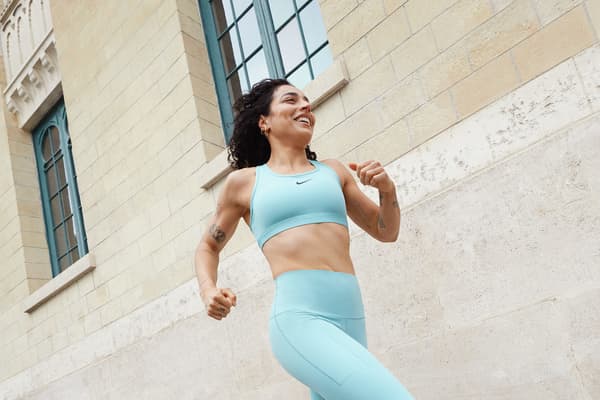How to Rehydrate After a Workout, According to Experts
Nutrition
Follow these hydration tips to bounce back from a workout.

It's no secret that hydration is an essential component to exercise. But, drinking water is not just about nourishing the body before and during a workout—it's also about rehydrating after the workout is complete to ensure expedited recovery and prevent dehydration.
According to research published in the Journal of Human Kinetics in 2021, hydration plays a vital role in the recovery process—in addition to boosting performance and even preventing injury during a workout. Because of this, being intentional about rehydration can help quench your thirst and also replenish your body and support vital cool-down efforts after getting your sweat on.
"Staying hydrated is not only important for adequate electrolyte balance in the body and for digestive aid, but it is also directly related to the regulation of body temperature and preventing overheating, heat exhaustion and heat stroke", said Emily Tills, MS, RD. "Exercise raises the body's internal temperature. In order to lower it or get it back within normal range, we need [to consume] adequate amounts of water".
(Related: How to Tell If You Have Heat Exhaustion—and What to Do About It, According to Doctors)
Tills explained that sweating during a workout can cause the loss of electrolytes, which are vital for organ function and facilitate muscle contraction. Therefore, it's imperative to replenish them through foods and beverages.
"Without rehydrating post-exercise, we run the risk of muscle cramping and even the risk of passing out and larger medical issues", Tills said.
How to Rehydrate After Exercise

Drinking water post-workout is beneficial for rehydrating; however, experts say there are some tips and tricks to getting the most out of water consumption after exercise.
1.Calculate Lost Fluid Post-Workout
"One way to rehydrate after a workout is to calculate the amount of fluid lost during your workout and replace it", said Cedrina Calder, MD MSPH. To do this, Calder said to record your weight before and after a workout and then subtract the number of ounces you consumed in fluids during the workout. To calculate this, you can either convert your weight to ounces and then subtract the number of fluid ounces consumed, or convert the ounces of fluid to pounds and then subtract.
"This will be the approximate amount of water you need to consume after the workout", she said.
2.Drink Water During Exercise
Taking sips of water throughout your workout will not only quench your thirst immediately, but it will also help with your rehydration efforts post-workout, too. According to Calder, one of the best things you can do is "drink water throughout your workout to minimise your level of dehydration post-workout".
According to the American Council on Exercise, it's best to begin the rehydration process while working out. The group recommended drinking 200ml to 300ml (approx.) of fluids after every 10 to 20 minutes of exercise.
3.Add Electrolytes to Your Water Bottle
Adding electrolytes to water not only quenches thirst but may hydrate the body more efficiently than water alone. According to Bethany Tennant, ND CNS, electrolytes can provide optimal hydration at a cellular level.
"The top electrolytes to consider when rehydrating include sodium, chloride, potassium, magnesium, phosphate and calcium", she said.
You can find electrolytes in many sports drinks—or in tablet form that dissolves in water. However, Tennant said it's just as easy (and perhaps more cost-effective) to make your own hydrating drink at home.
"Some [do-it-yourself] options could include a pinch of quality sea salt, a squeeze of lemon and a little honey, or coconut water, pomegranate juice, maple syrup, a pinch of salt and a squeeze of lemon", she said.
Tennant explained that coconut water on its own is a replenishing beverage. According to research, coconut water is comparable to sports drinks in terms of electrolytes. It's also rich in potassium and contains sodium chloride, two electrolytes that support muscle function.
(Related: Will Drinking Salt Water Hydrate You More Effectively Than Normal Water?)
4.Quench Thirst With Mineral Water
At the end of the day, you can't go wrong with drinking plain water. But, for added benefit, Tills said to reach for mineral water, which can help with rehydration, thanks to a rich source of electrolytes.
Mineral water is typically rich in sodium, potassium and magnesium, which can all help satisfy hydration needs.
5.Monitor Urine
Keeping an eye on the colour of your urine is another way to assess rehydration needs. "When adequately hydrated, your urine will be clear with a tinge of yellow", Calder said. "Continue to rehydrate until your urine indicates that you are adequately hydrated".
According to The Cleveland Clinic, dark yellow or amber-coloured urine is a sign that you haven't consumed enough fluids and could indicate mild dehydration.
Other Ways to Rehydrate After a Workout
Rehydrating after a workout isn't just reserved for sipping on electrolyte beverages or coconut water. Experts say there are some other—more flavourful—ways to rehydrate after a workout, too.
1.Sip on Some Chocolate Milk

According to Tills, "chocolate milk has a three-to-one carb-to-protein ratio, which is ideal for recovery along with 13 essential nutrients and electrolytes to aid in rehydration".
She recommended drinking 240ml (approx.) of chocolate milk in addition to water to rehydrate.
(Related: Experts Say This Is the Top Recovery Drink to Have After a Workout)
2.Blend a Smoothie

Tennant recommended rehydrating with a smoothie post-workout. "A smoothie can be a great option as many fruits and vegetables are [good] sources of both water and electrolytes", she said.
When creating your post-exercise smoothie, Tennant said to consider things like nut butter, seeds, bananas, avocados and green leafy vegetables—all of which are rich sources of electrolytes.
3.Eat More Water-Rich Foods

While replenishing with water is the top recommendation, Tennant said you can also support your rehydration efforts by introducing water-rich foods as a post-workout snack.
"A fruit or vegetable that has a water content of 80 percent or higher can be a great option", she said.
Examples of hydrating foods:
- Watermelon
- Pineapple
- Blueberry
- Apple
- Cucumber
- Cantaloupe
- Celery
- Spinach
- Strawberry
- Orange
Words by Jessie Quinn





